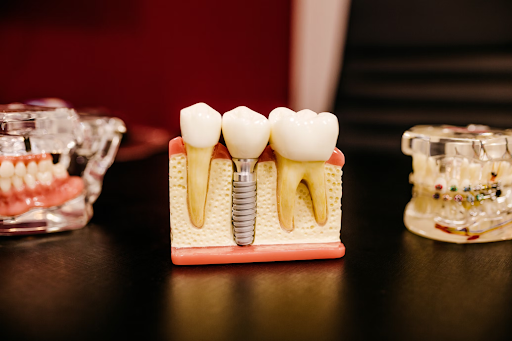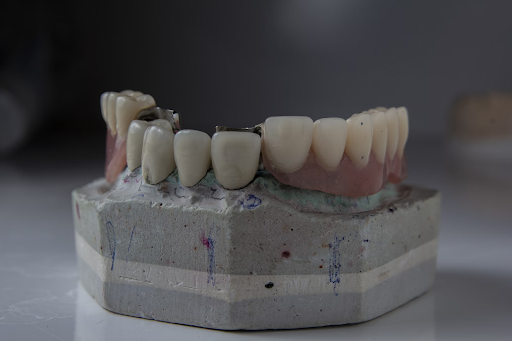When people talk about dental implants, they often focus on the cosmetic benefits—finally filling a gap in your smile or replacing a broken tooth with something that looks natural. But the true story goes deeper. Dental implants influence how you chew, speak, and even how your jawbone ages. If you’ve ever searched “dental implants valencia” or asked a dentist in valencia about long-term oral health, you’re already on the right track: implants are about function and wellness as much as they are about appearance.
What Exactly Is a Dental Implant?
A modern implant is a small, biocompatible post placed where a tooth’s root once lived. After placement, your bone fuses to the implant in a natural process called osseointegration. Once healed, a connector and crown create a lifelike replacement tooth. Unlike removable dentures, implants are fixed; unlike traditional bridges, implants don’t require neighboring teeth to be ground down for support. That difference—root-level replacement—sets the stage for significant health benefits.
How Implants Support Whole-Body Health
1) Chewing Power and Better Nutrition
Teeth aren’t just for smiling; they’re your first step in digestion. Missing teeth or loose dentures can push you toward softer, processed foods, which may shortchange fiber, protein, and micronutrients. Stable implants restore bite strength, making crunchy vegetables, lean meats, and whole grains easier to enjoy. Over time, this supports balanced nutrition—fuel for immunity, muscle maintenance, and overall energy.
2) Bone Preservation and Facial Structure
When a tooth is lost, the jawbone in that area can slowly resorb because it no longer receives “load-bearing” signals. Implants transmit everyday chewing forces into the bone, helping preserve volume. Maintaining bone helps protect neighboring teeth and supports facial contours, which can soften premature “sunken” changes around the mouth and cheeks.
3) Clearer Speech and Social Confidence
Gaps or unstable dentures can cause lisps, clicks, or slippage. Because implants are secure, they often help stabilize speech, reduce day-to-day anxieties about eating or laughing in public, and support social participation—an underappreciated component of mental well-being.
4) Oral-Systemic Inflammation—A Healthier Baseline
Periodontal inflammation is a two-way street: oral health can affect systemic inflammation and vice versa. Implants don’t eliminate the need for hygiene (peri-implant tissues can become inflamed, too), but their stability makes daily care more predictable. Consistent brushing, interdental cleaning, and professional maintenance help keep bacterial loads lower, supporting a healthier inflammatory baseline.
Implants vs. Traditional Options
Bridges: A bridge can replace a tooth by crowning adjacent teeth and suspending a replacement tooth between them. It’s often faster upfront, but it does require altering healthy teeth, and it doesn’t stimulate bone where the root was lost.
Partial or full dentures: These can restore appearance and some chewing function at a lower initial cost. However, movement and sore spots are common, and bone resorption may progress beneath the denture base over time.
Implants: Root-level stability, bone preservation, no preparation of neighboring teeth, and high chewing efficiency make implants a long-view solution. The trade-off is a more involved process and higher initial investment. Many patients find the long-term health and function benefits worth it.
Who Makes a Good Candidate?
A thorough exam—including 3D imaging—helps determine whether there’s sufficient bone and healthy gums. Controlled medical conditions (such as diabetes) and tobacco use require careful planning but often do not exclude treatment. Good home care and regular professional cleanings remain essential; implants thrive in clean, healthy tissue.
Life With Implants: Daily Habits That Matter
- Brush twice daily with a soft brush; consider an electric brush for consistency.
- Clean between implants and natural teeth with floss, interdental brushes, or water flossers.
- Visit your provider for regular cleanings and checkups; professional monitoring catches early signs of irritation before they escalate.
- Protect your investment: If you grind or clench, a night guard can reduce excessive forces on implants and natural teeth.
Why Location Still Matters
Oral health is personal, and proximity makes follow-up easier. If you live or work in the Santa Clarita Valley, you’ll likely compare a dentist in valencia with a dentist in santa clarita, or you might start with a quick “dentist near me” search. Beyond convenience, here’s what to look for:
What to Ask During a Consultation
- Experience and training: How often does the practice place or restore implants?
- Imaging and planning: Do they use cone-beam CT (CBCT) scans and digital planning for guided placement?
- Restorative materials: What crown and abutment materials do they recommend—and why?
- Hygiene protocols: How will your maintenance plan be tailored to implants?
- Team coordination: For complex cases, does your provider collaborate with periodontists or oral surgeons?
Valencia & Santa Clarita Considerations
Many residents commute or juggle family schedules. Evening or early appointments, coordination with orthodontic or periodontal specialists, and easy parking sound like small details but make ongoing maintenance far more sustainable. In other words, the best clinical plan is the one you can actually keep up with—geography and logistics included.

The Long-Game Value of Implants
Thinking beyond the mirror is the smart way to evaluate dental care. Implants can help you chew a broader range of foods, preserve bone, stabilize speech, and simplify hygiene routines. These benefits stack up over years—often translating to fewer compromises at meals, more confidence in daily interactions, and a jawbone that ages more gracefully.
If you’ve typed “dental implants valencia” or scrolled through reviews for a dentist in valencia, a dentist in santa clarita, or even a general dentist near me, you’re not just shopping for a smile upgrade. You’re choosing a health investment that touches nutrition, anatomy, and quality of life.
A Practical Next Step (That Isn’t Salesy)
Start with information. Book a consultation to discuss your medical history, imaging, and a personalized plan. Ask about timelines, phased options (when appropriate), and maintenance expectations. Whether you proceed now or later, understanding your jawbone, bite, and restorative options will empower better decisions—dental and otherwise.
Quick FAQ
Do implants look natural?
Yes. Modern ceramics and custom shading blend with your smile, but the real win is functional—stable chewing and preserved bone.
Are they hard to clean?
Not if you build habits. Routine brushing plus targeted interproximal cleaning keeps tissues healthy.
How long do they last?
With good hygiene and professional care, implants can last many years. The crown may need replacement due to normal wear, similar to natural teeth.
Bottom Line
Dental implants aren’t just about closing a gap; they’re a foundation for eating well, speaking clearly, and maintaining a youthful facial structure. For Valencia and Santa Clarita residents, choosing a nearby provider who plans precisely and prioritizes maintenance can make the difference between a cosmetic fix and a lifelong health upgrade.







